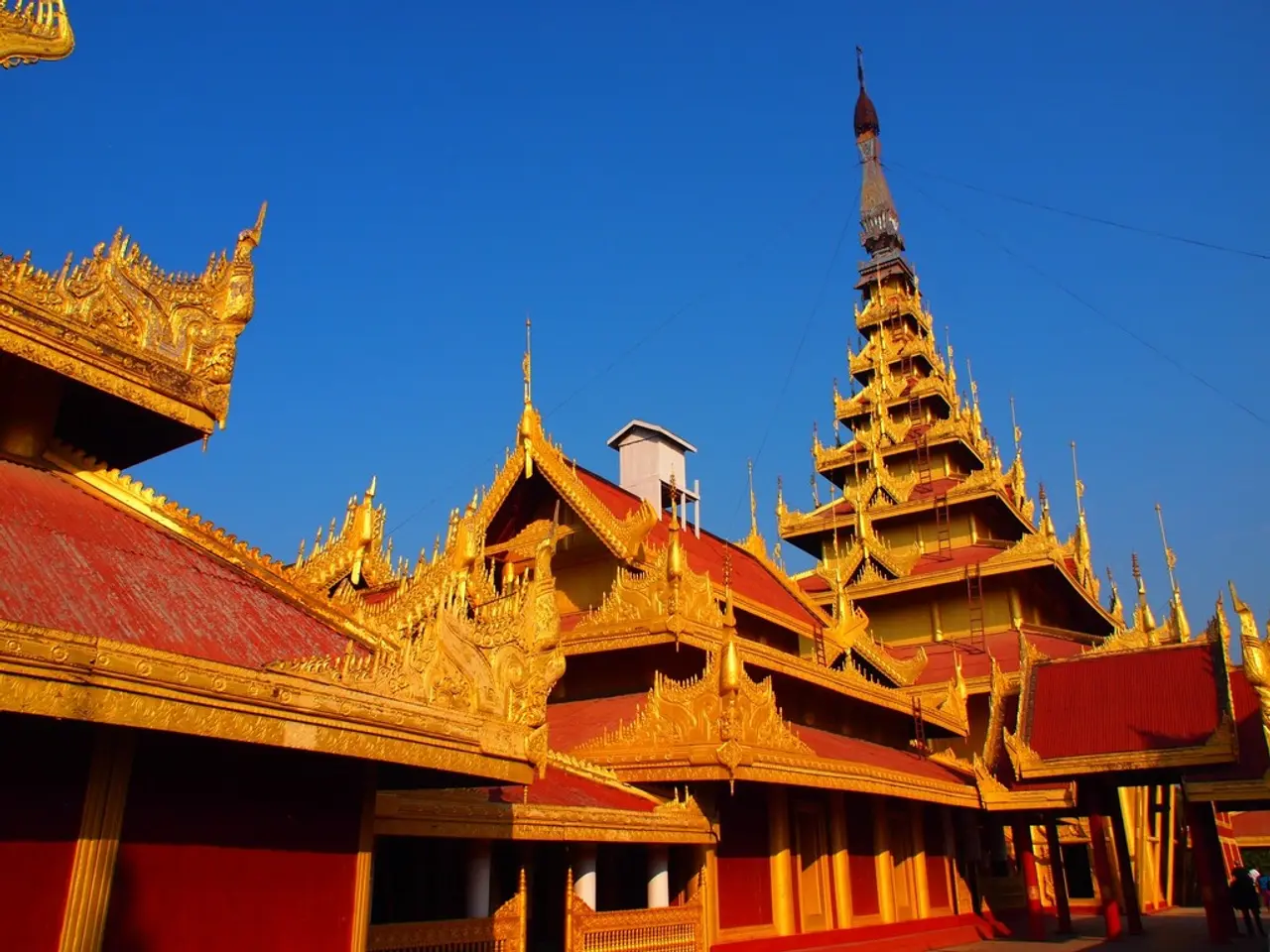Temple Controversy Between Thailand and Cambodia: Its Implications for Present-Day Travelers
In the heart of Southeast Asia, a century-old border dispute between Thailand and Cambodia has once again erupted into violence, causing significant disruptions to the region. The recent escalation of the conflict, centred around the Preah Vihear temple, began on July 24, 2025, and marks the worst violence in over a decade.
The border conflict, rooted in colonial-era treaties and nationalist rivalries, has led to sporadic clashes since 2008, with the most significant escalation since 2011 happening in early July 2025. Artillery shelling and ground skirmishes have been reported near the disputed area, leading to over 120,000 civilians fleeing their homes [1][2][3][4].
In the Preah Vihear Province, Oddar Meanchey Province, Banteay Meanchey Province, and several provinces in Thailand (Surin, Sisaket, Buriram, and Ubon Ratchathani), the ongoing conflict has caused widespread disruption [3]. The Cambodian Red Cross has stated that at least 90,000 civilians have been displaced within Cambodian provinces bordering Thailand, while more than 30,000 residents have been relocated from border districts in Thailand [1][2].
The Preah Vihear temple, an 11th-century temple, is the main point of contention in the ongoing border dispute. The temple was designated a UNESCO World Heritage Site in 2008, which escalated the border conflict [4]. The ICJ ruled in 1962 that the temple lies within Cambodian territory, but the surrounding 4.6-square-kilometre land remains disputed. Despite the ICJ's ruling, Thailand did not fully vacate its military presence from surrounding hills and access roads [4].
The ongoing violence and instability have prompted travel restrictions and advisories. Several border crossings, including the Chong Chom-O Smach checkpoint, have been closed indefinitely [3]. International agencies including the UNHCR and ICRC are coordinating relief efforts for displaced populations [3].
The impact on tourism has been significant. The Preah Vihear temple is a major tourist attraction, and the conflict has disrupted access, created security concerns, and undermined confidence in visiting the region [1][4]. This disrupts local economies dependent on cross-border tourism and contributes to broader regional instability. Tourism is witnessing deep disruption in both countries, with popular temple circuits in northern Cambodia seeing a sharp decline in footfall [4].
In terms of international mediation, ASEAN, along with the United States and China, has been actively involved in efforts to broker ceasefires and de-escalate tensions. A ceasefire was announced on July 28, 2025, brokered in Malaysia under international pressure, but it quickly collapsed as clashes resumed within hours [2]. The success of such diplomatic efforts depends on strong leadership, verification mechanisms, and limiting nationalist political manipulation [2][3].
As the situation continues to unfold, both sides have indicated willingness to return to negotiations but have not yet agreed on terms. The Thai Defence Ministry claims the military is acting in defence after "provocations" from Cambodian forces, while Cambodian officials claim that Thai troops shelled civilian areas near Preah Vihear [2]. In 2024, Cambodia submitted further evidence to the ICJ requesting enforcement measures, but no resolution has been reached [4].
Travellers are advised to remain vigilant and follow the latest travel advisories issued by their respective embassies. The advisory issued on 24 July 2025 urges Indian nationals to remain in contact with the embassy and local authorities due to security concerns and the risk of escalation in border zones. Similar advisories have been issued by the embassies of the United States, United Kingdom, and Australia [3]. Airlines operating between Bangkok and Siem Reap have not yet suspended services, but security screenings and delays have lengthened [3].
References:
- BBC News
- The Diplomat
- Reuters
- Al Jazeera
- The escalating war-and-conflicts between Thailand and Cambodia, particularly over the Preah Vihear temple, has disrupted travel and lifestyle in the region, necessitating travel advisories from various embassies.
- General-news sources report that the ongoing border dispute, rooted in colonial-era treaties and nationalist rivalries, has caused significant disruptions in tourism, particularly in provinces adjacent to the point of contention.
- Crime-and-justice agencies are coordinating relief efforts for the over 120,000 civilians displaced due to artillery shelling and ground skirmishes near the disputed border, as the escalating violence and instability continue to unfold.




